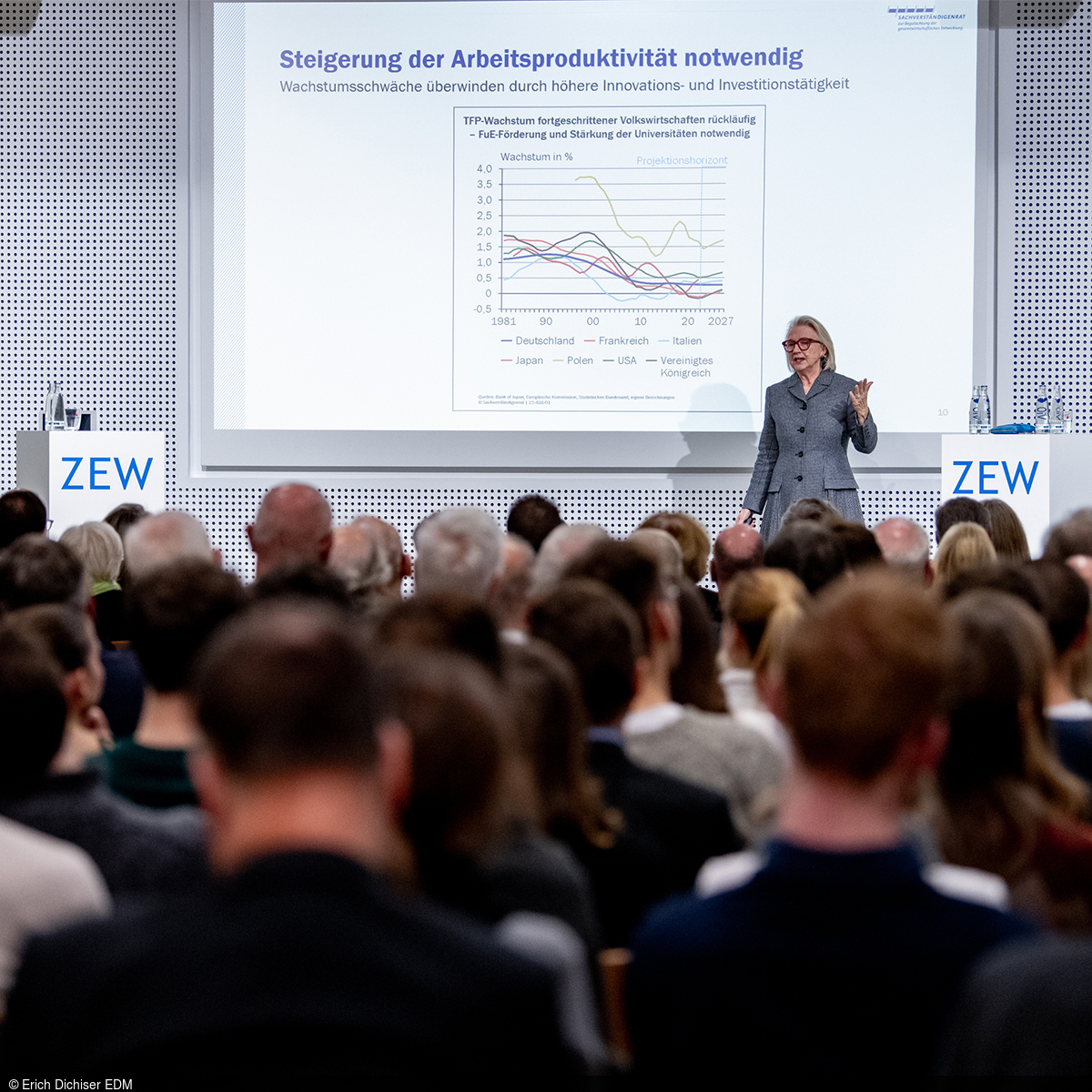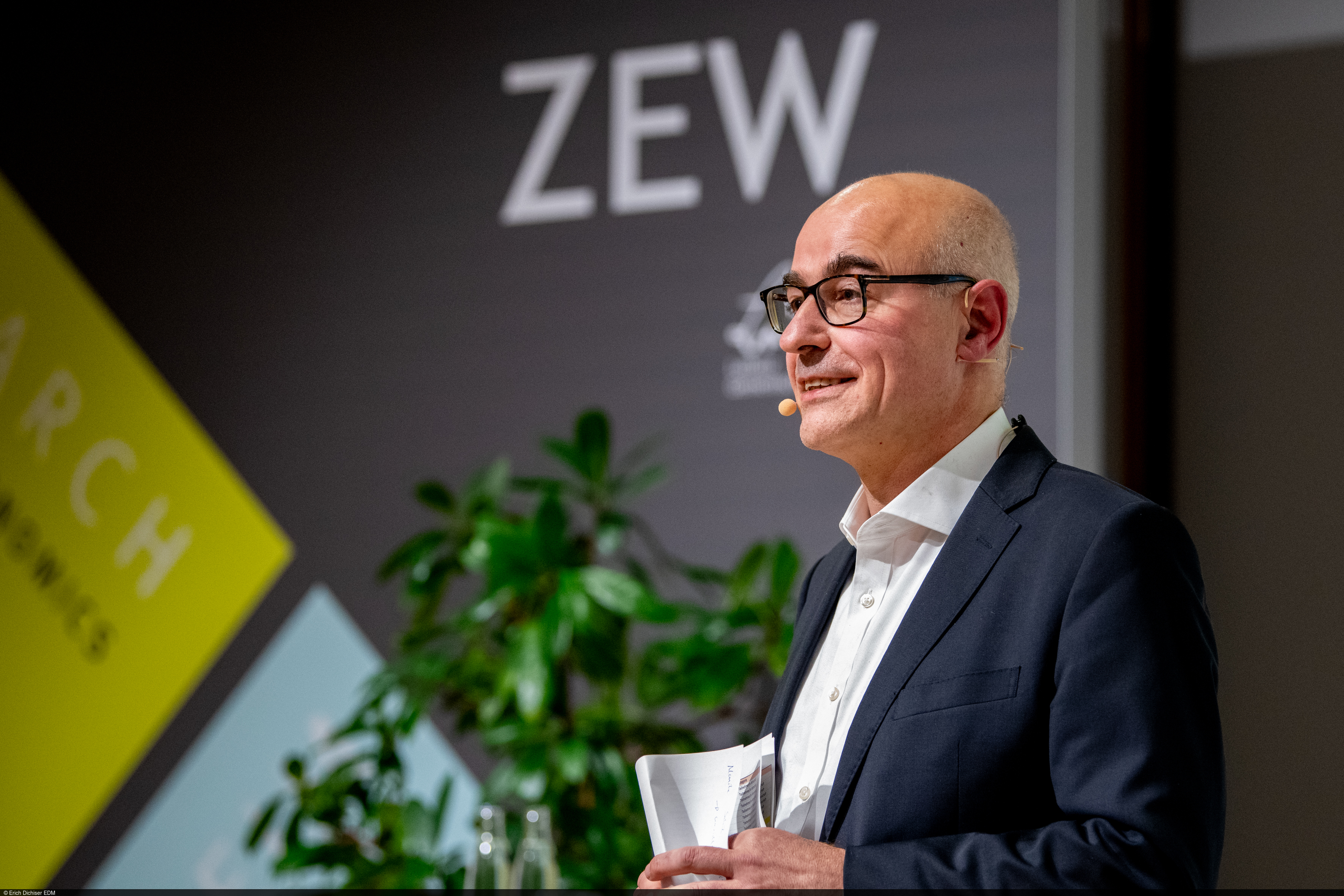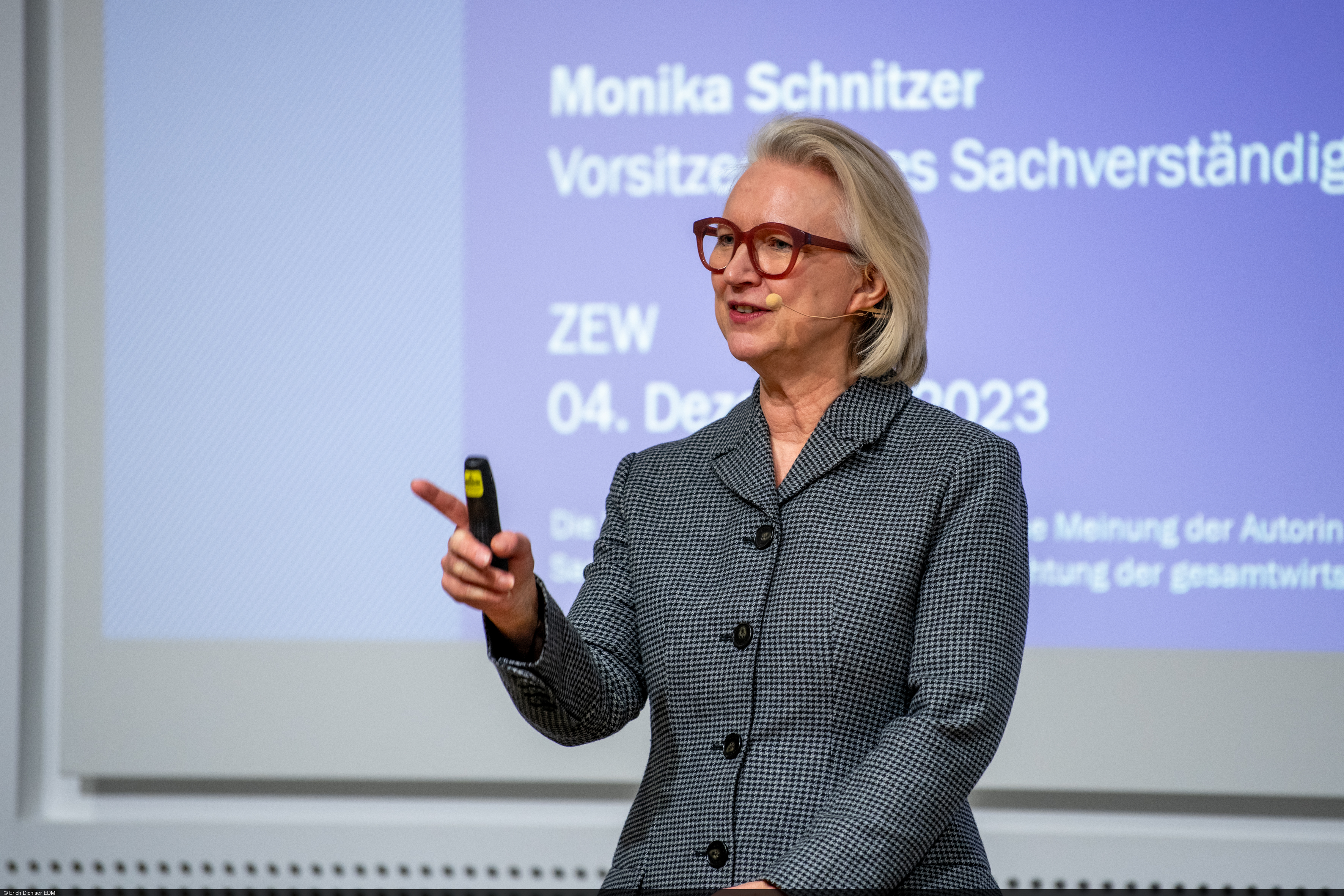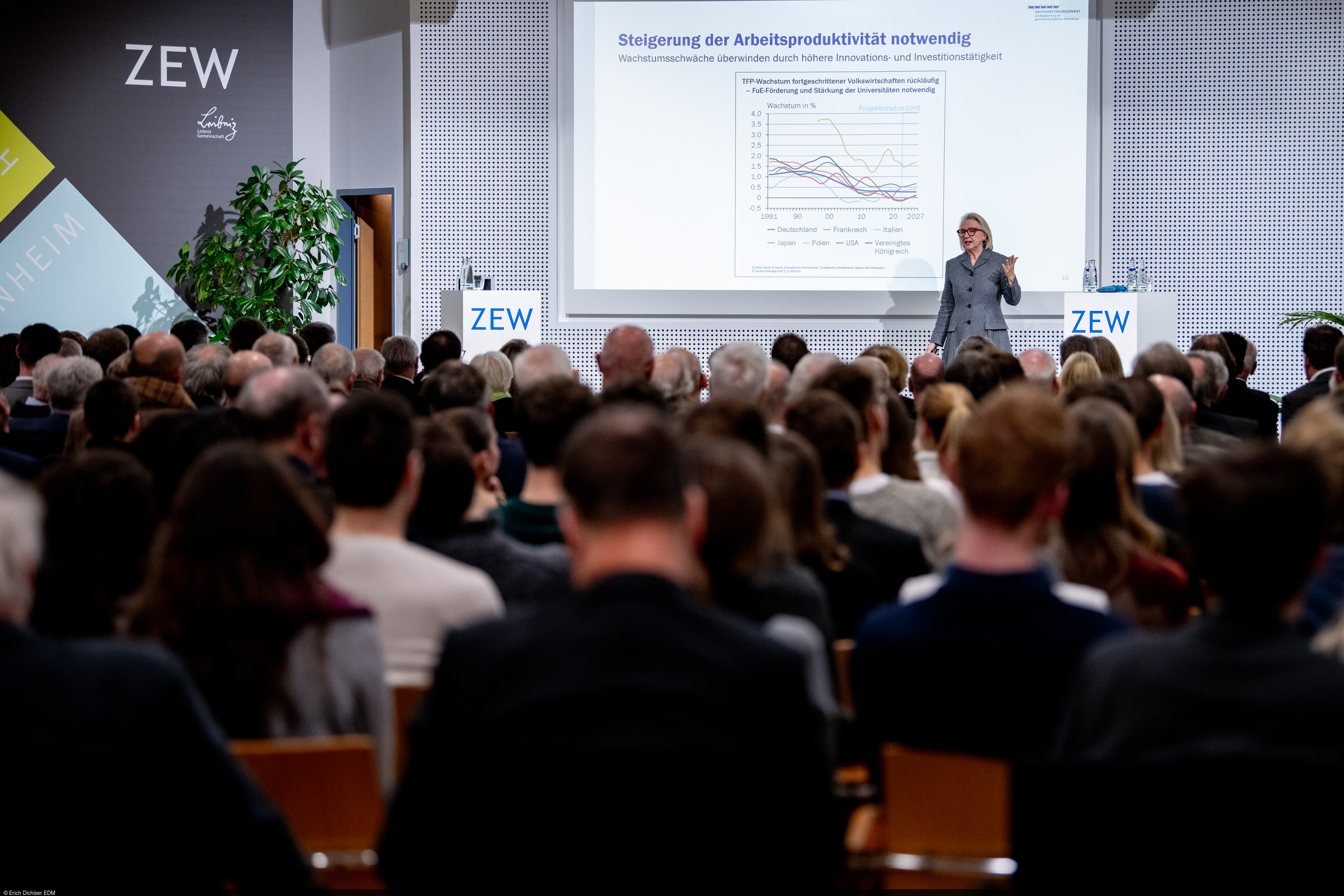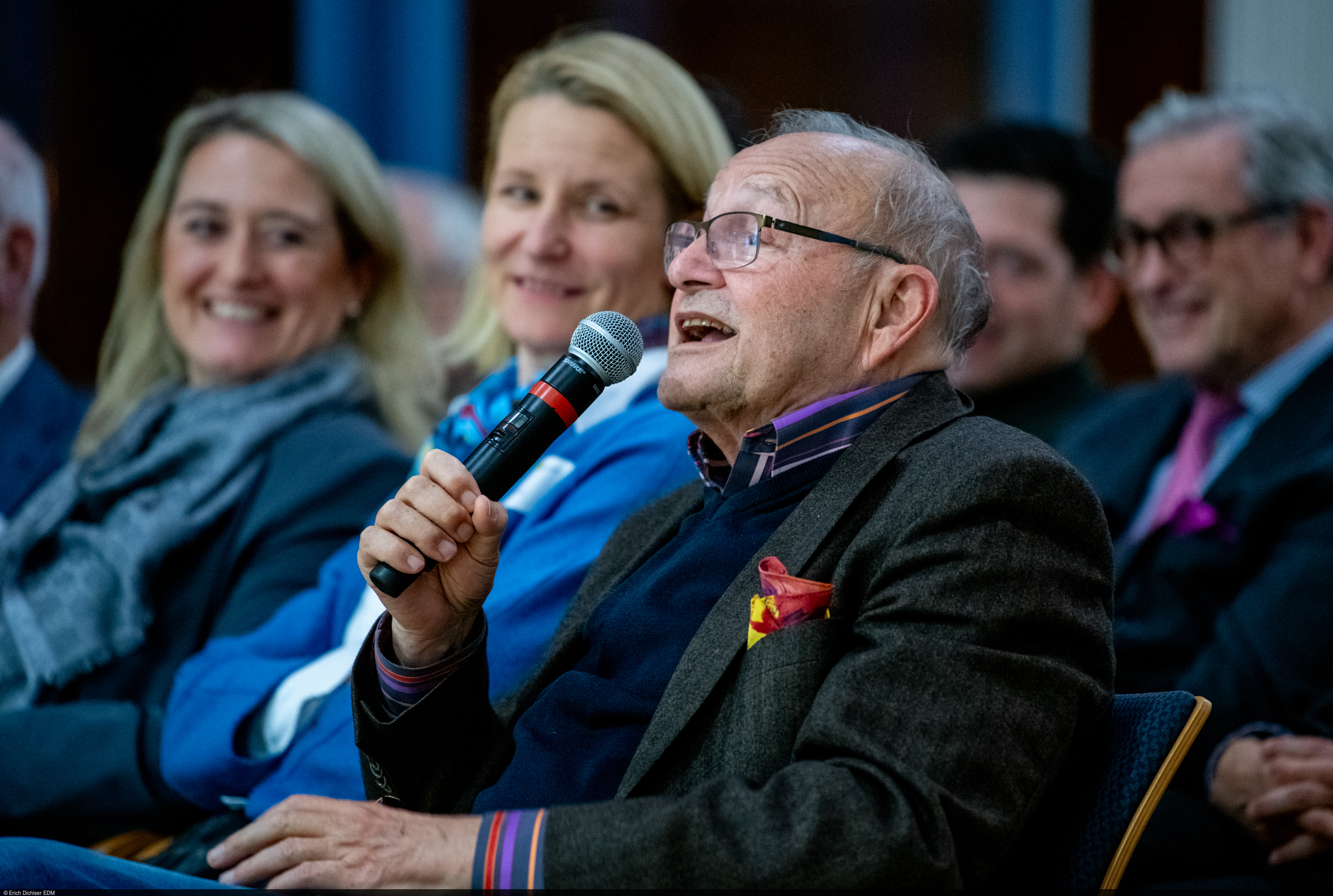“Germany Is Not the Sick Man but the Ageing Man of Europe”
Public EventsThe 2023/24 Annual Report of the German Council of Economic Experts
The growth of the German economy faces hindrances, including demographic ageing, low productivity growth, outdated capital stock, and a scarcity of young and innovative companies. In its annual report, the German Council of Economic Experts identifies the most pressing economic policy challenges and proposes measures to address them. Professor Monika Schnitzer, the Council’s chair, provided a comprehensive overview of the recommendations in an exchange with ZEW President Professor Achim Wambach on 4 December 2023, as part of the ZEW event series “First-Hand Information on Economic Policy” in Mannheim.
Monika Schnitzer opened her talk by stating, “Germany is not the sick man of Europe, but it is the ageing man of Europe.” She pointed out that Germany’s economic recovery is being delayed because the industrial sector has not yet experienced the necessary modernisation boost. The past period has been characterised by high energy prices, a decrease in real incomes due to high inflation, and consequently lower consumer demand. Core inflation will remain high at 3.1 per cent in the medium term. The service sector in particular is now facing higher labour costs, which will drive up prices even further.
In the long term, Germany is facing weak growth. However, greater digitalisation, especially in administration, could provide a remedy and counteract the shortage of skilled workers. Small and medium-sized enterprises in particular still have plenty of scope to exploit the untapped potential of digitalisation, according to Schnitzer.
Reform of the pension system is necessary
The imminent retirement of the baby boomer generation not only means a decline in labour volume – the number of hours worked – but also represents a major challenge for the pension system: According to current legal requirements, the sustainability factor in pensions implies an increase in contributions and a reduction in pension payments.
The Council of Economic Experts sees a need for pension reform and proposes two measures: linking working life to life expectancy and, as too few children are being born, encouraging individual capital-funded pension provision. “If the reform to capital-funded pensions had been implemented 20 years ago, we would be in a much better situation today,” Schnitzer emphasised. However, the effects of these measures would only materialise in the long term. In the short term, pension increases should be limited or linked to inflation instead of wage development. Germany is one of the few countries where wages are used as a benchmark for pension development.
Modernising research data infrastructure
Monika Schnitzer concluded by criticising the state of research data infrastructure in Germany as “backward”. To provide evidence-based advice, data is crucial. Legislators should enact output-orientated rather than input-orientated regulations, as each data collection currently requires its own law. Other European countries operating under the same General Data Protection Regulation manage to do this, while in Germany, data protection is cited as an obstacle. When weighing up data protection and the use of data, greater emphasis should be placed on the benefits of the latter.
The subsequent discussion with ZEW President Professor Achim Wambach and the Q&A session with the audience touched on current topics such as dissenting opinions in the report, the ongoing debate on the citizen’s benefit, and the Constitutional Court’s ruling on the government coalition’s supplementary budget. In light of the Constitutional Court’s ruling, Schnitzer called on all democratic parties to cooperate. This is a moment when everyone must overcome their differences. They are all in the same boat, as several CDU-led states are also facing budget problems as a result of the ruling.
Prizes for ZEW Researchers
Before Monika Schnitzer’s talk, the chairman of the ZEW Sponsors’ Association, Dr. Ralph Rheinboldt, honoured three researchers from ZEW and one from the University of Basel for their outstanding work. The ZEW Sponsors’ Association celebrates its 30th anniversary in 2023.
ZEW economist Dr. Michaela Slotwinski, together with Professor Alois Stutzer from the University of Basel, received the prize for the best scientific performance. They were honoured for their study “Women Leaving the Playpen: The Emancipating Role of Female Suffrage”, published in the prestigious The Economic Journal. The study demonstrates a strong connection between political participation and self-determination of women.
The award for the best economic policy advising project went to ZEW researchers Professor Kathrine von Graevenitz and Elisa Rottner for their project “TRACE” funded by the Federal Ministry of Education and Research. It examines the effects of climate policy regulations on the competitiveness and energy consumption of the German industry.










